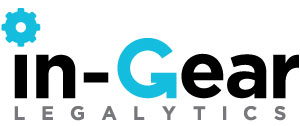
Legal Horizon 2016
An Observation on Efficiency and Efficacy by Kenny Tung
The Chicago Kent – Janders Dean Legal Horizons Conference was encouraging in demonstrating advances in legal operations and activities that are on track and gathering steam compared to where the legal profession was as recent as two to three years ago.
The agenda was packed full of eye-opening and thought- provoking presentations. Messages from lawyers and law firms covered topics and discussions such as cultural changes, efficiencies and legal process management, managing outside counsel, budgets and alternative fees arrangements, and reduction of waste. On the other hand, presenters from outside the legal profession – Google (focus on users and transformation), 18F & Fjord (user-centric mentality and design process), iManage (helping customers to work better), Deloitte & Chicago Kent (solving problems with data analytics and machine learning as a service), Eris Industries (explaining the value of block chain), HighQ (valuation & risk analysis of leases directly improving management of asset portfolios) – focused more on underlying clients’ needs and purposes.
An exception in the conference was Seyfarth Shaw. Albeit part of the legal profession, they illustrated their process of co-creation and brainstorming with clients, demonstrating how to apply a basic consulting tool in the legal space and garnering rousing applause from the excited audience.
The dividing line between these two categories of initiatives in the legal service industry may expose a need to improve the link between efficiency and efficacy. Perhaps a dominant volume of news on the former and a relative paucity of examples in the latter category is a function of the share of law firms activities in the legal service market, or corporate legal functions being reticent on sharing their more strategic initiatives, or simply a reflection of the continuing gap between the legal space and commerce/technology that has already found relatively large value and savings in services sectors outside the legal profession.
Further adoption of innovation in the legal sector will require more change management than in other sectors before it. From a business’s perspective, both efficiency and efficacy are important, but the forces that will drive more changes will likely originate from the latter. When a majority of the legal community has retooled itself to understand and engage the vital interests of their clients, whether commercial or non-profit/public interest, the gear of the legal service industry will finally interact with the gears of their clients, and all relevant factors surrounding the clients’ enterprise. At that stage of development, many clients will volunteer resources and support to encourage the reformed legal profession to participate in these projects to generate values beyond savings.
The central idea behind these drives for efficiency and efficacy is to free up lawyers to take up work of higher value and impact. Yet thoughtful questions have been raised regarding: 1) whether more than a few lawyers know what the high value work they are supposed to transition to actually is and 2) whether it should be the duty of disruptive innovators to figure out how the displaced professionals can branch out to engage in such higher value work.
Lawyers may simply need to reform ourselves to learn to do some of that work. For starters, learn to work with the broader strategies of the clients and execution and, in the case of a commercial enterprises, design corporate legal strategies to engage the clients’ overall strategies, and retool the legal resources, whether internal or external, to execute that strategy.
See download strategy deck for corporate counsel below.
